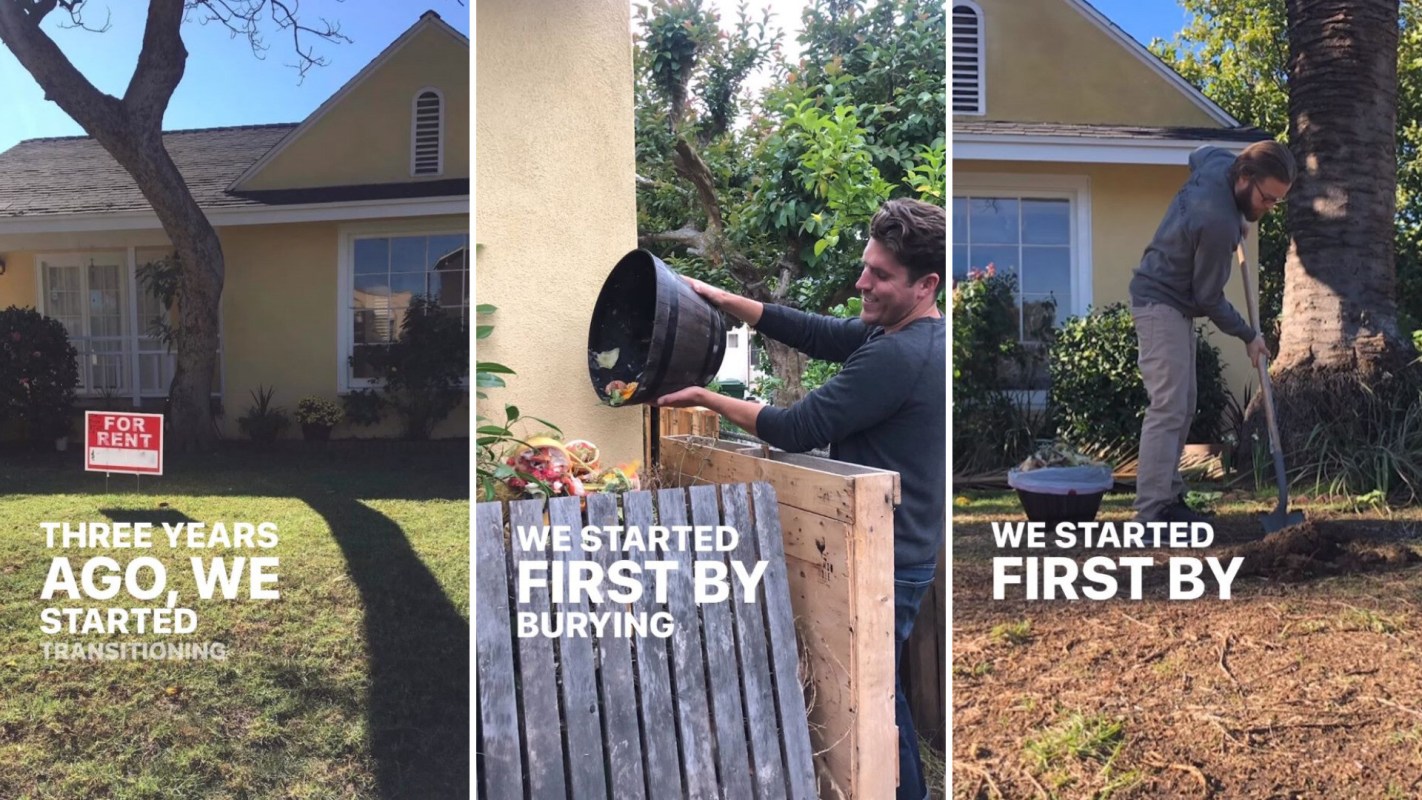Filmmaker and chef Oliver English (@oliver_english) earned praise for an Instagram post that showed his yard's transformation from an unused lawn into an "urban food forest and pollinator habitat."
The post shows a video transformation of the yard, opening with an image of a lush, diverse garden and English saying, "You are never going to believe what this place used to look like."
Then, with a snap of his fingers, viewers can see his dry, unused lawn — followed by a step-by-step explanation of the transformation.
He explains that they started the transition three years prior after being inspired by the gardeners and farmers they got to know during the making of the Feeding Tomorrow documentary.
"We started first by burying our food waste and then planting, planting a lot, planting lots of trees, herbs, pollinator flowers, and food," Oliver explains. "Now, home to butterflies, bees, hummingbirds, and a whole lot of food and flowers."
Native landscapes have gained traction recently in an attempt to stop the overheating of our planet. Urban food farms like the English's take the trend a step further, providing even more benefits.
Urban gardens provide access to fresh, healthy food. They also contribute to the reduction of planet-warming gases created by the transportation of produce from its source. Sharing with neighbors will also help reduce its impact on the environment and build strong community ties.
Landscapes like this further create important biodiversity and provide homes and food for local wildlife and pollinators, which scientists estimate nearly 75% of the world's flowering plants and 35% of the world's food crops depend on to produce.
The video ends with English saying, "Imagine a world where every yard, every lot, every pot, to feed families and our communities. That's what we're about."
While we can't all do this on the scale shown here, we can help make their vision a reality by growing herbs in a pot, cultivating a small garden, or planting at least one flower that could feed a bee or butterfly. We can and should follow this example to any degree we can.
Viewers agreed, too, as the comments section was filled with praise for the transformation.
"This warms my soul! My pollinator garden was the best decision I ever made! Food for pollinators (and less grass to mow 😂)," said one.
"If every yard was a garden, a neighborhood could almost feed everyone there," said another.
Join our free newsletter for easy tips to save more, waste less, and help yourself while helping the planet.









